17 Things You’re Doing in the Kitchen That Are Unsafe

The kitchen can be a dangerous place. Sharp objects, scalding water, open flames. And not to mention the abundance of germs and the diseases they could cause: According to a recent study in Scientific Reports, your kitchen sponge likely has more germs than your toilet. But the scariest thing in your kitchen isn’t an inanimate object. It’s you.
Yes, even though your kitchen is full of knives and disease, those dangers only rear up due to human error. And though you may have a lot on your plate (literally and metaphorically), it’s in your best interest to identify the common safety slip-ups you’re making on the regular.
The good news? Correcting course is effortless, and will ultimately save you even more time in the long run. So wash your hands and read on, because we’ve identified all the hazards you’re creating every time you put pot to stove. Before you know it, your kitchen will be the safest room in the house—even when you’re in it.
Rinsing Raw Meat
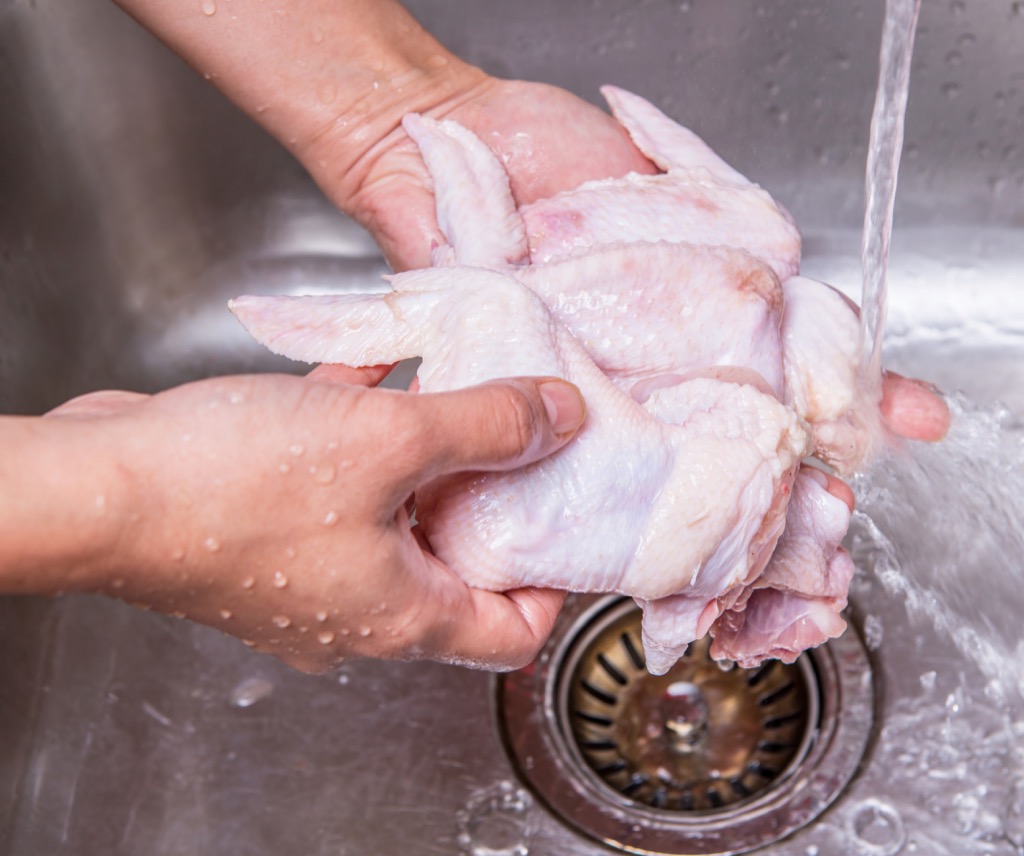
While you definitely should rinse off fruits and veggies before consuming them, raw meats don’t require any rinsing, according to the USDA, since thoroughly cooking the meat at a high temperature will kill any resident bacteria. In fact, it can actually be harmful for you to “wash” your raw meats, as the water could spread latent bacteria like Salmonella around your sink area, and contaminate other foods.
Washing Produce Far in Advance
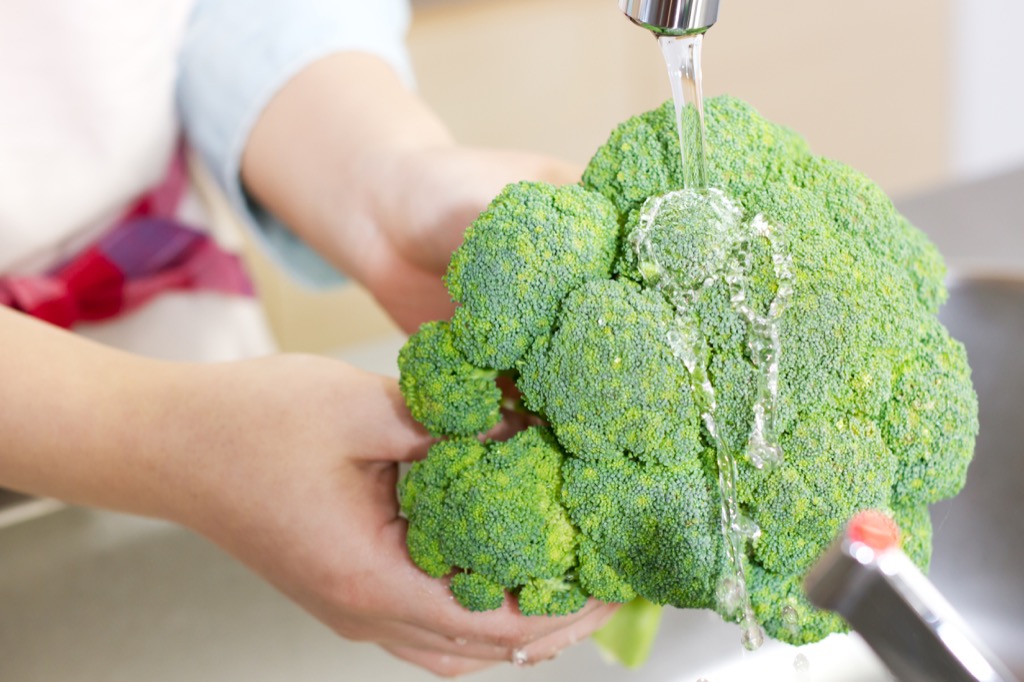
While it might seem like a good idea to go ahead and get that chore out of the way as soon as you return from the grocery store, you really should wait to rinse off your fruits and vegetables until immediately prior to when you plan to snack on them. The layer of condensation on any newly-rinsed items you place in the fridge can prompt the growth and spread of mold.
Not Replacing Your Cutting Board
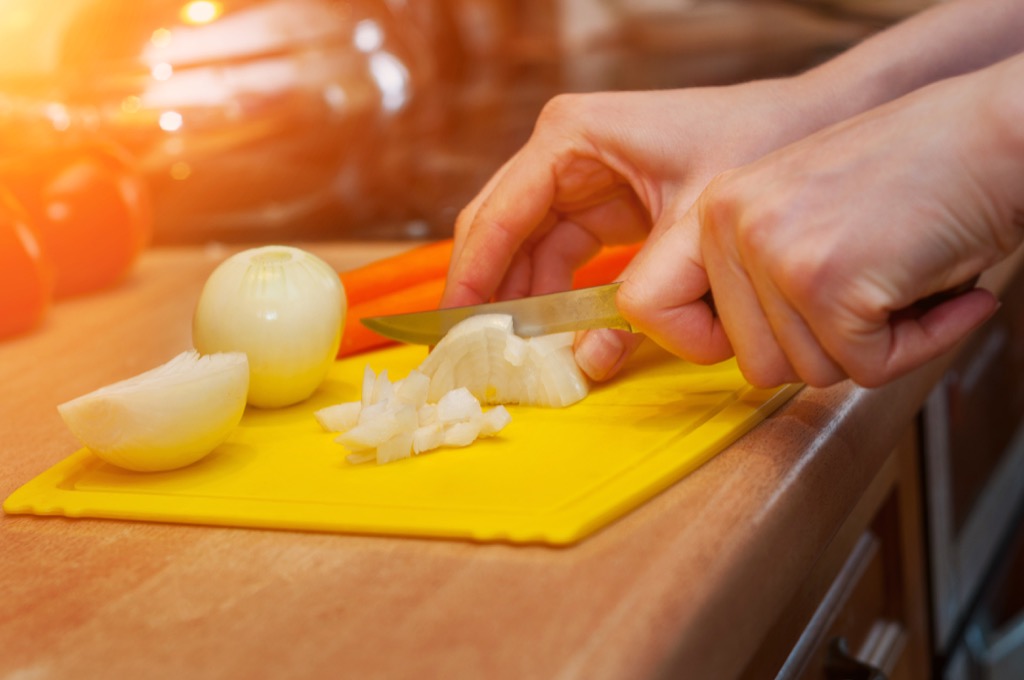
With the sheer number of foods that require some sort of slicing and dicing in order to be properly prepared, you want to ensure that the surface you’re cutting those foods on is bacteria-free, right? Yeah, it seems like a no-brainer. But in reality, you have to be pretty stringent about just how you’re going about sanitizing your boards—and how often you replace them.
Plastic cutting boards are dishwasher-safe, but they’re also more malleable, meaning they’re prone to developing nicks and grooves over time where bacteria can hide. Once your plastic cutting board builds up a significant number of grooves, it’s probably time to retire it—otherwise, you run the risk of contaminating your food.
Putting Warm Food in Plasticware Before it Cools Off
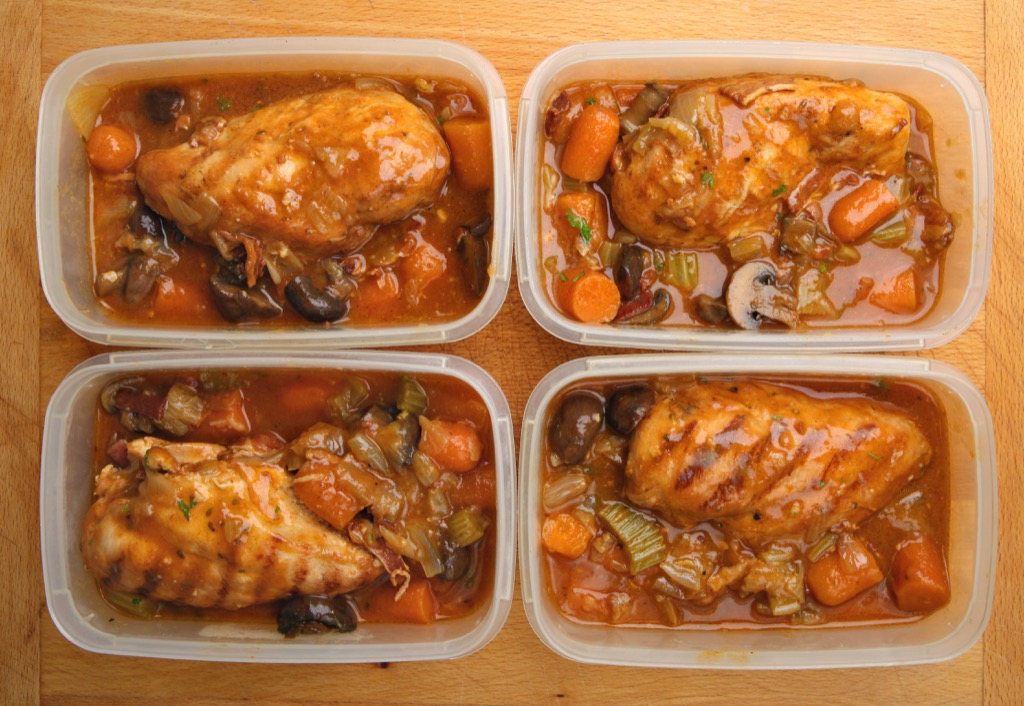
If you’re putting the tasty crockpot leftovers in a plastic container clearly marked “BPA free,” then you’re probably okay to go ahead and ladle it in before it cools completely. But if the plastic container isn’t clearly marked, there’s a chance it could contain BPA, a chemical that’s released when exposed to heat—therefore leaving it “free” to intermingle with your food.
The same goes for microwaving your food in plastic containers. You should always double-check to make sure the plastic is BPA-free (or better yet, put the food a ceramic bowl or a glass container) before heating it up.
Or Waiting Too Long to Store Your Food
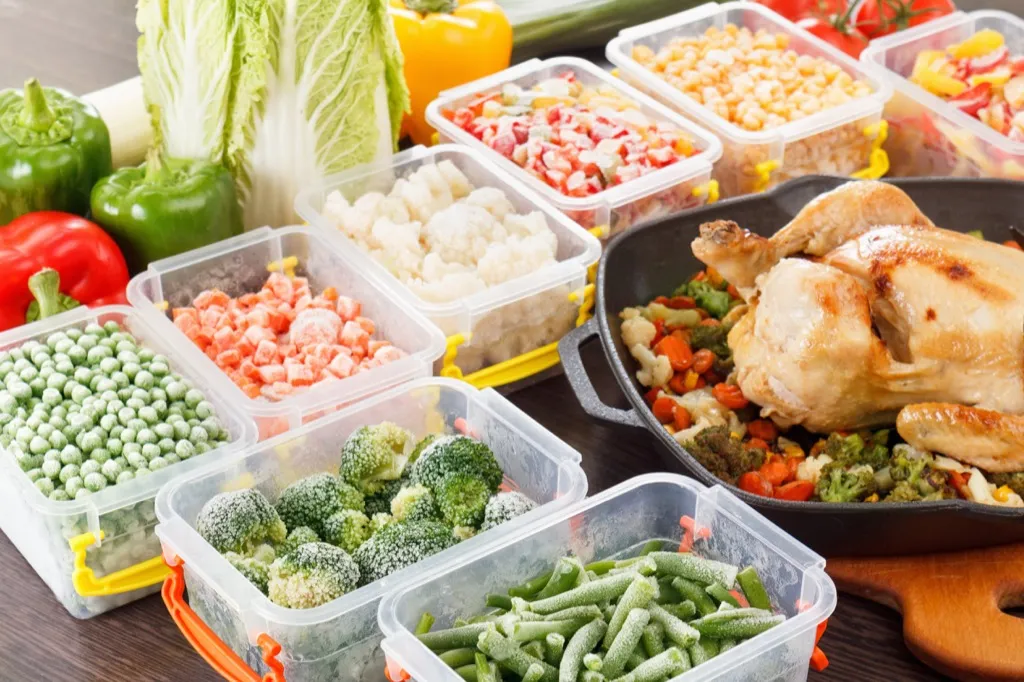
That said, you shouldn’t allow food to sit out for too long before putting it up in the refrigerator. The U.S. Department of Agriculture recommends that cooked food be left out for no longer than two hours—any longer than that, and it becomes a breeding ground for bacteria multiplication. It’s the delicate balance of a happy medium, people.
Letting Food Thaw on the Counter
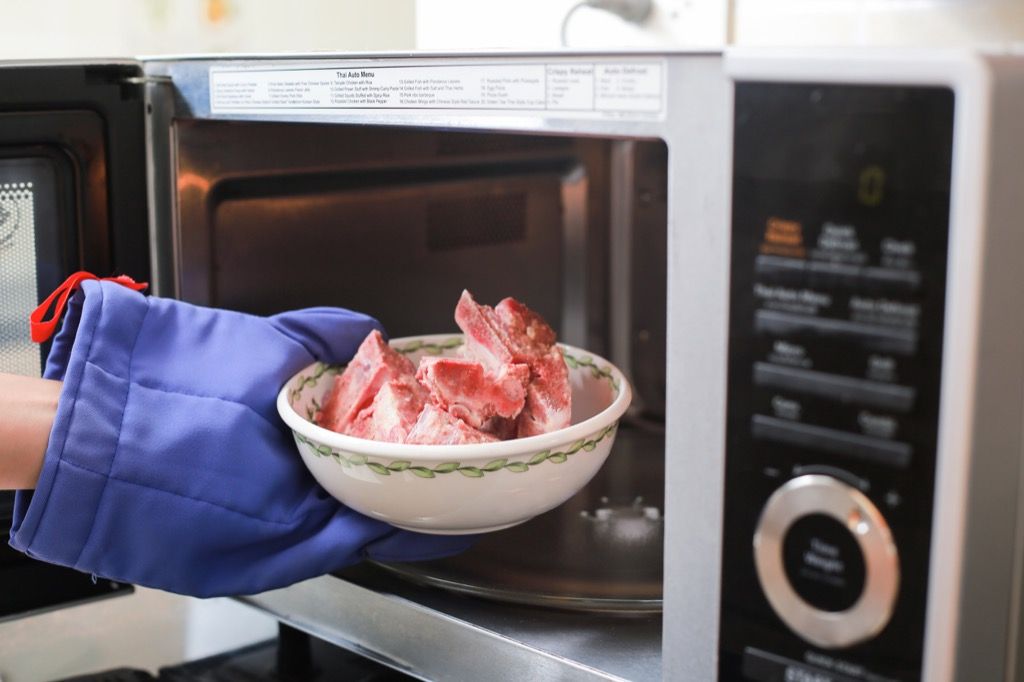
The counter might seem like the logical place to thaw out your chosen cut of meat to thaw out, but this prolonged exposure to room temperature conditions is an open invitation for bacteria to set up shop and reproduce in your food. Instead, opt for thawing your foods in the refrigerator (put a fully frozen product in the night before you plan on cooking it), or even by using the “Defrost” setting on the microwave.
Preparing Foods with the Same Utensils Used on Raw Meat
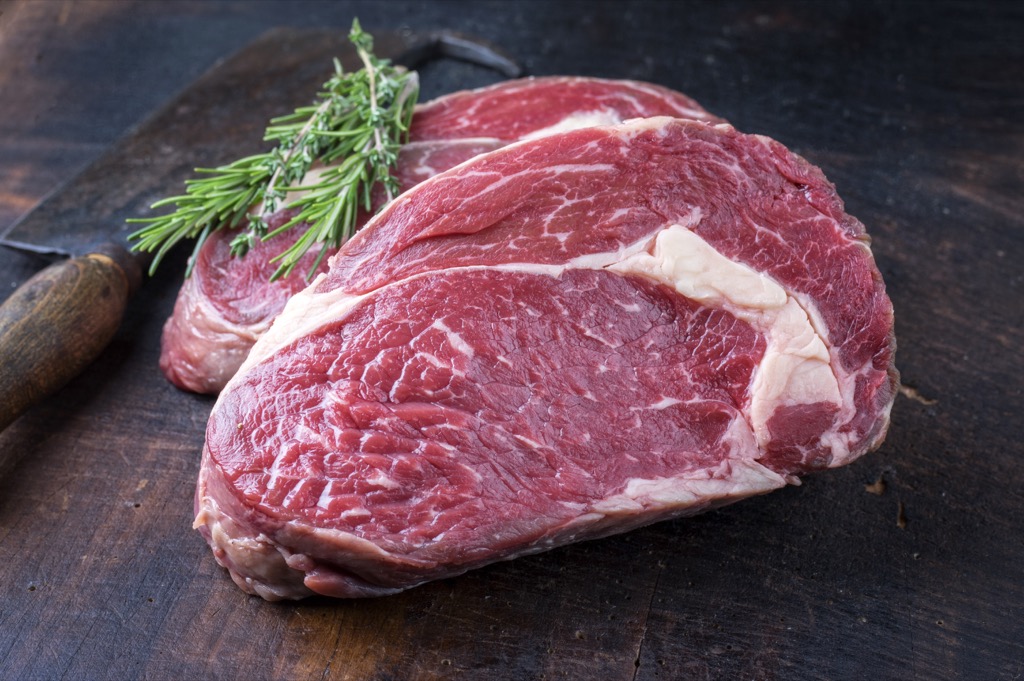
As a good rule of thumb, you should never slice fruits and veggies on a cutting board or with a knife that was previously used to prepare raw meat—at least, not before everything has been thoroughly soaped and scrubbed!
As a study published in the Journal of Food Protection revealed, preparing other foods with utensils that previously held raw meat runs the risk of cross-contaminating your food with bacteria like Salmonella and Campylobacter jejuni (which you definitely don’t want).
Forgetting to Scrape Your Grill Before Firing It Up

While we highly doubt that cleaning is anyone’s favorite part of the cooking process, it is absolutely necessary, especially when it comes to grilling. Allowing all those charred remnants to accumulate without a thorough scraping after each grilling session can be detrimental, as it increases the risk that your grill will catch on fire due to grease flare-ups. According to the National Fire Protection Association, a staggering average of 9,600 household fires are started by grills each year.
Not Turning the Pan Handle Around When Heating
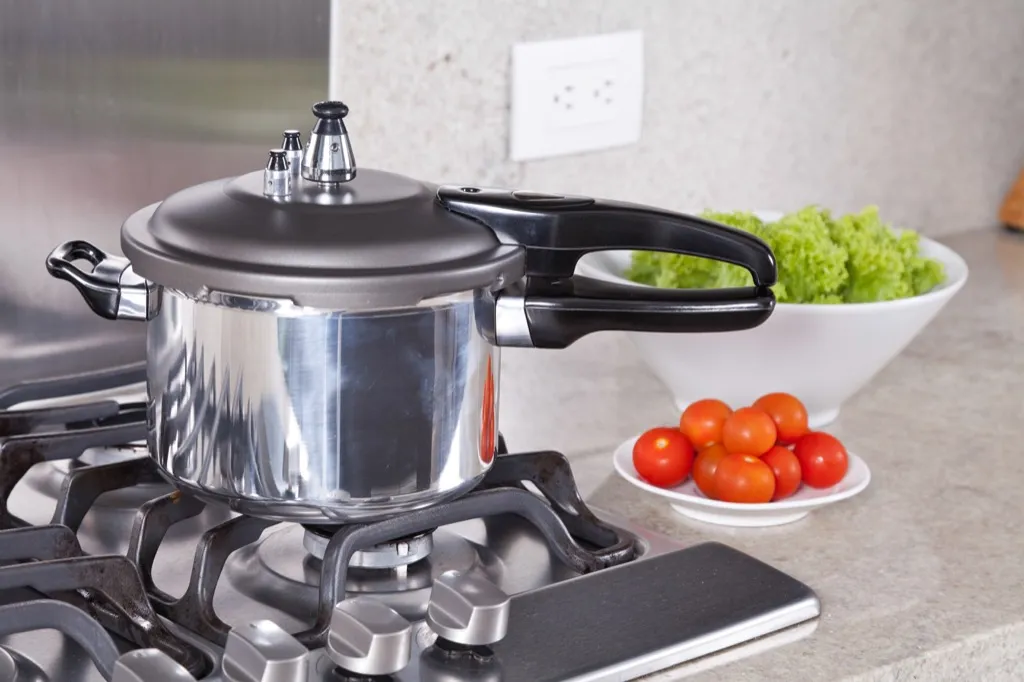
This tip may seem elementary, but it’s pretty crucial to protecting your skin from scalding contents sizzling on the stove. When heating anything up, it’s good practice to leave the handle of the pot or pan inward, well removed from where passerby could inadvertently knock into it. This is especially important when you leave the stove unattended—say, for a quick trip to the sink—for any length of time. It’s all too easy for a person (or a pet!) to come barreling by the stovetop and knock into the handle before they notice it, spilling the pan’s contents and putting themselves at risk for severe burns.
Washing Your Dishes in Cold Water
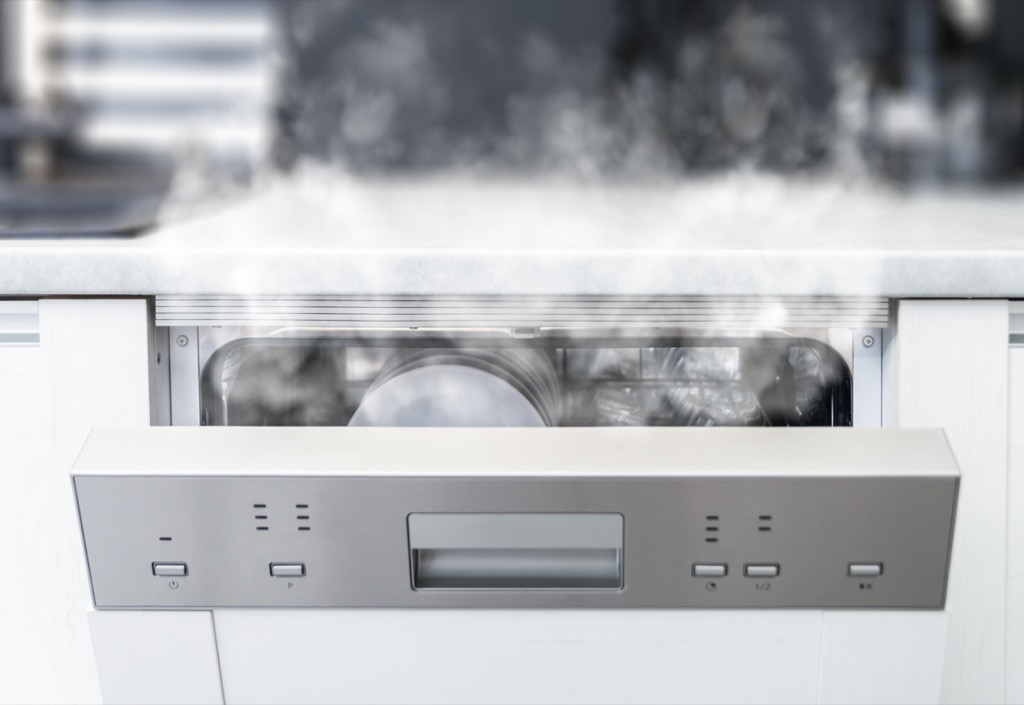
No matter how much soap you dispense, swishing your dishes in cold water just isn’t going to be effective at killing all the bacteria that can accumulate in the food encrusted on your plate. The golden temperature, according to FDA regulations, to ensure your dishes are nice and sterilized is between 120º and 150º Fahrenheit. This temperature is probably best attained in a dishwasher, where you won’t burn your hands. But, if you don’t have one—or prefer the sink—you can resort to sturdy dishwashing gloves to protect your hands and wrists from constant scalding water.
Not Splurging on a New Sponge Often Enough
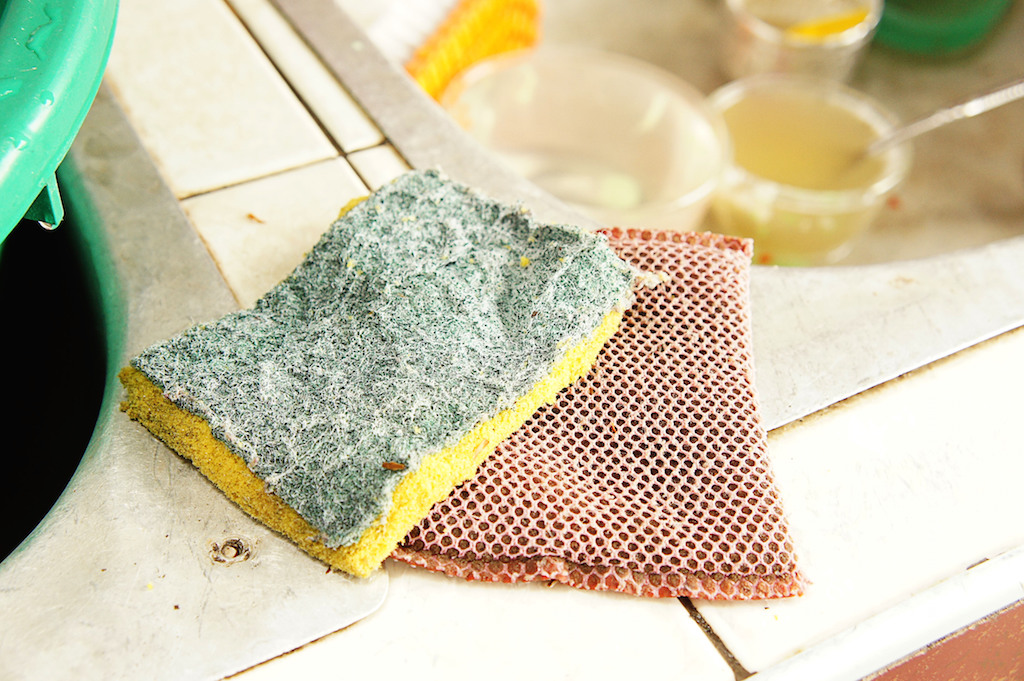
This might sound obvious, but you want the thing that you’re using to scrub your dishes clean to be clean, too. Sponges can harbor a disgusting amount of unsanitary bacteria, and using them for a prolonged amount of time just spreads that bacteria all around your kitchen (when you actually think you’re getting your space nice and tidy). A recent German study on the bacterial abundance spread around by kitchen sponges recommended replacing your sponge on a weekly basis.
Not Storing Meat on the Bottom Shelf of the Fridge
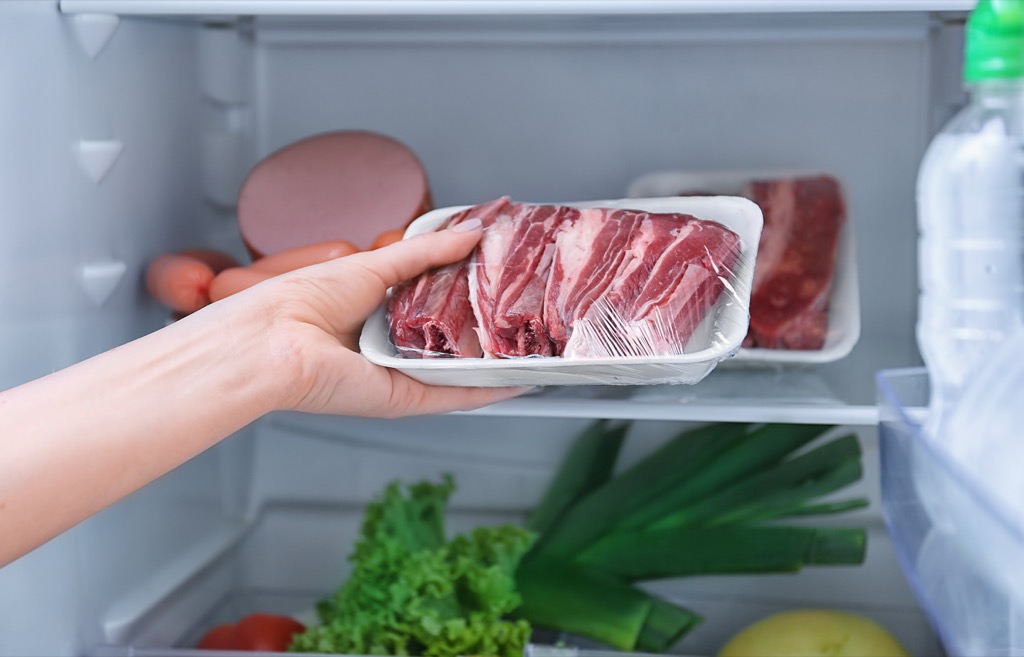
Store your chicken breast and pork ribs on the top shelf of the fridge, and those juices that make the meat so yummy (when cooked) could leak—contaminating all the rest of the contents of your fridge. We don’t want you to have to toss out all your fresh berries and that new tub of yogurt you just brought home from the grocery store, either.
Putting Silverware in the Dishwasher Pointy End Up
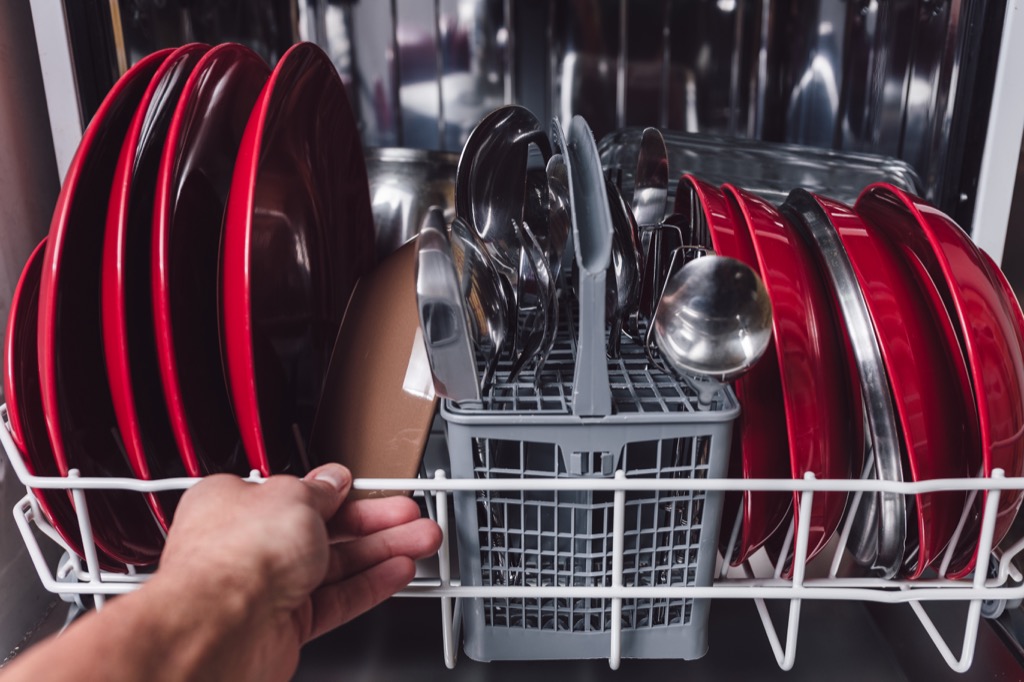
That’s a huge safety no-no. When loading the dishwasher, place your forks and knives in the utensil area with their handles facing up. You never know when someone could trip in the vicinity of the dishwasher while you’re either loading or unloading, and the last thing you want is for them to be impaled by a fork tine or knife blade. Plus, it’s much easier to put away a handful of silverware when you’re unloading a dishwasher where all the handles are prominently displayed, ready for you to grab.
Ignoring Expiration Dates

This is especially dangerous with dairy products like milk, yogurt, and soft cheeses, where the inherent moisture provides a cozy location for dangerous bacteria to proliferate. The same goes for fresh meat—you never want to eat that past its “sell-by” date.
Companies don’t go to the trouble of printing those small black dates on their products for nothing, you know! It’s the law for a reason. There are some exceptions, though: Canned goods, as long as they’re not dented or rusted, are usually okay to keep past the printed date, according to the USDA.
Running Cold Water Over Hot Glass
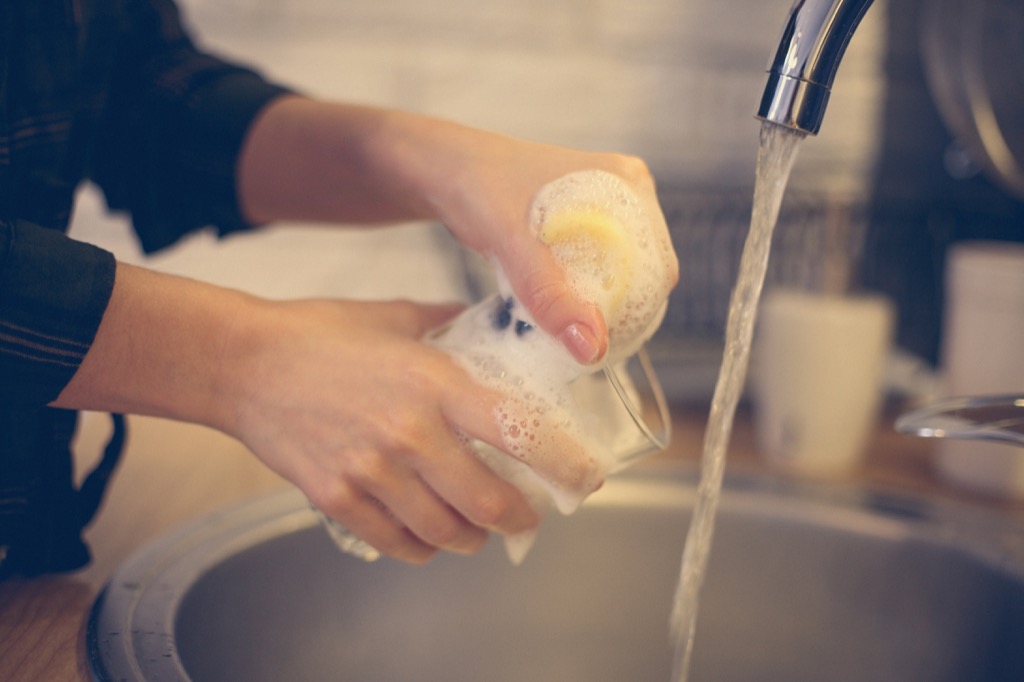
As you may remember from high school lab safety quizzes, glass is a poor heat conductor, and it also expands when it’s hot. Running cold water over hot glass, like the glass pan that held your fresh-from-the-oven brownies just moments ago–could cause the glass to shatter, because part of the glass is shrinking (from the cold water), while the other part of it is still expanding from the heat—and it’s just not possible for both to take place at the same time.
So make sure you get your sink faucet pumping hot water (or better yet, let the pan sufficiently cool off) before sliding the pan into the sink for a rinse.
Improperly Cleaning Your Garbage Disposal
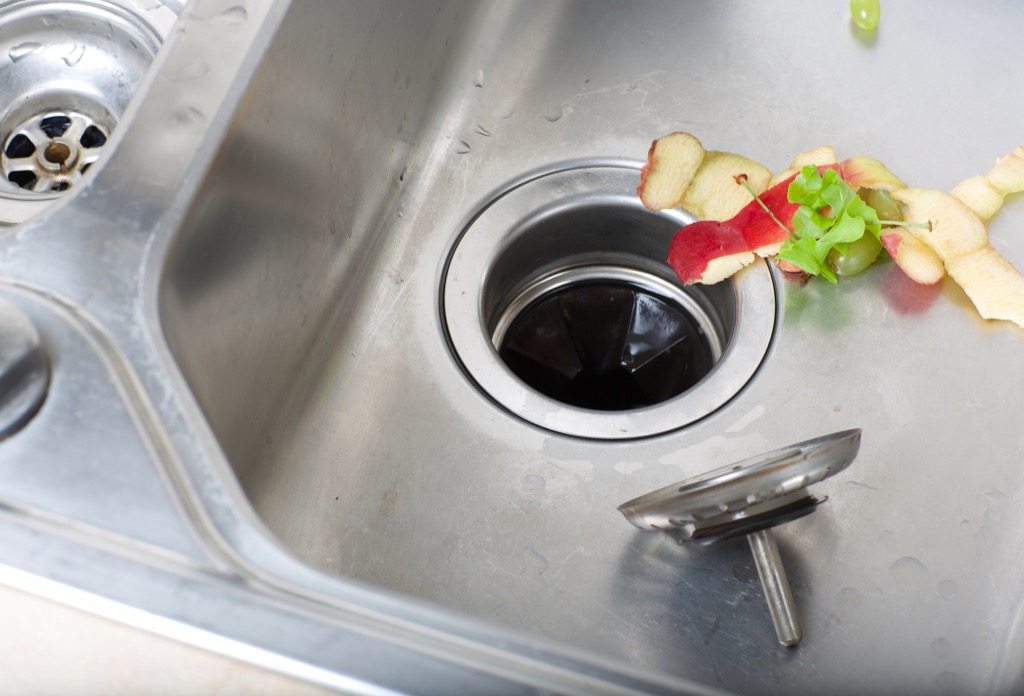
Under no circumstances should you stick your hand into the garbage disposal without first ensuring that the blades are turned off. Even then, it’s best to use tongs when reaching into the disposal to retrieve any items that don’t belong—those blades aren’t worth messing with, if you value your fingers and thumbs.
The best cleaning practice is to pour concoctions like ½ cup baking soda and ½ cup vinegar into the disposal and then run cold water. The solution which will first fizz (think of it like a fun, grown-up science experiment) before flowing through the disposal and doing the work of cleaning all that equipment for you. As you might expect, failing to clean your disposal often enough can lead to a messy, odor-producing build-up—so it’s safest to clean your disposal on a weekly basis.
Forgetting to Turn Off the Stovetop
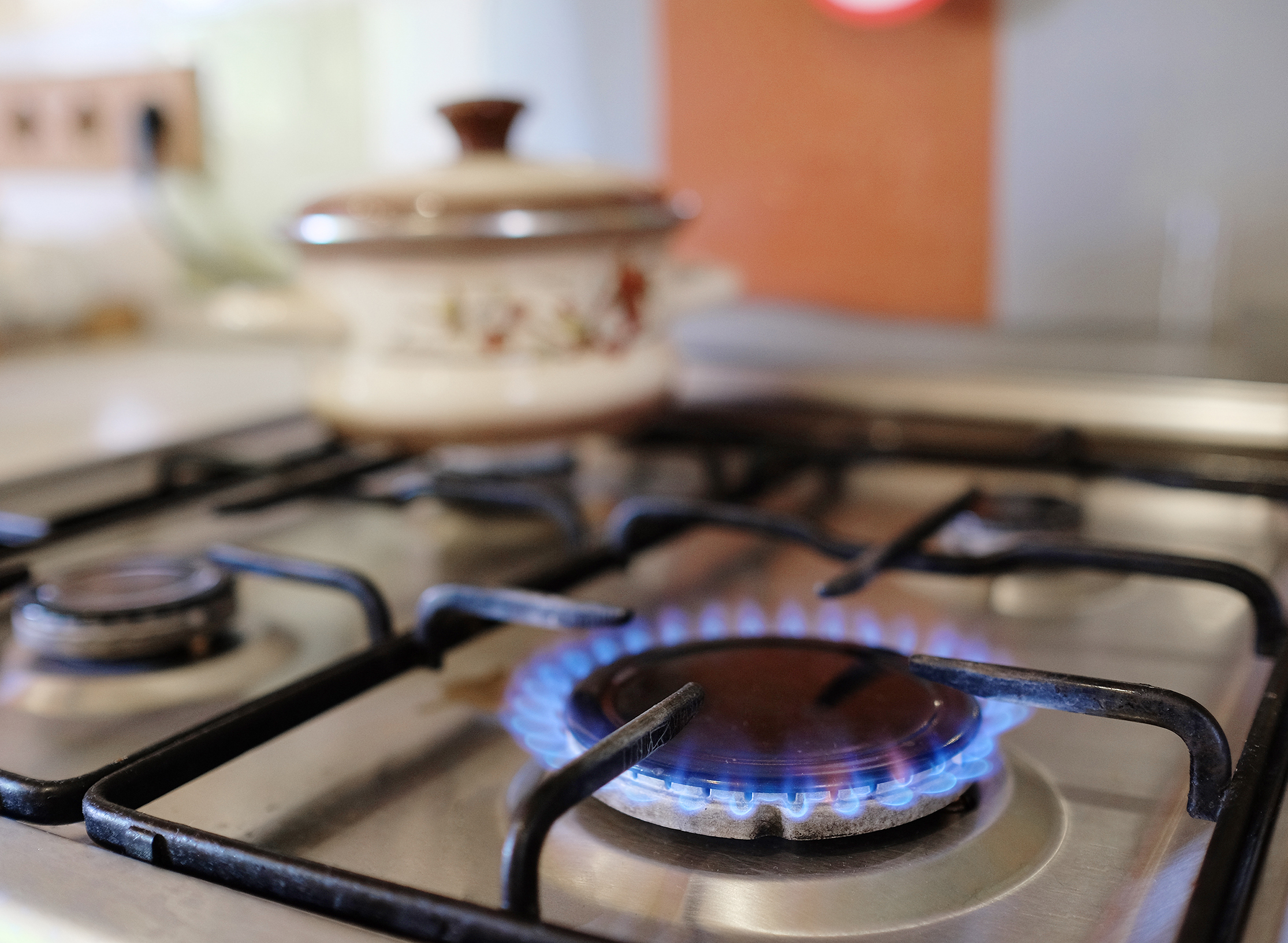
We know it’s happened to you at least once: you’ve been so enthralled by the tantalizing smell of the steak and cheese omelette you just took off the stove that you headed straight for the dinner table before turning off the heat.
The National Fire Protection Association reports that from 2011-2015, 33 percent of home fires were started by unattended cooking equipment, making that the leading cause of home cooking fires. It’s simple enough, but just a half-second of checking to make sure the stove is in the “off” position could be the difference in whether or not your home stays standing—as drastic as that might sound.